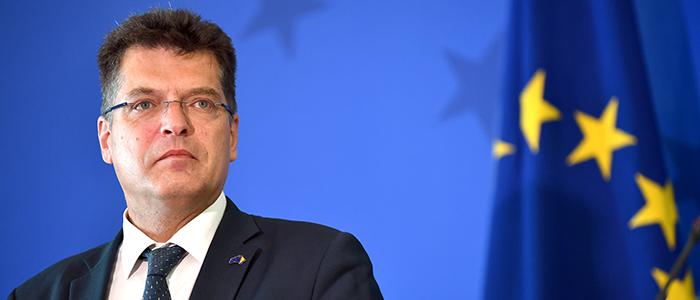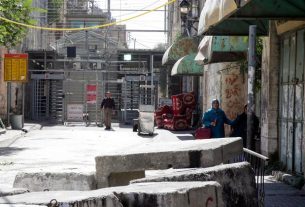At COP28, Commissioner for Crisis Management, Janez Lenarčič, will endorse on behalf of the EU 2 new flagship initiatives to address the human impact of the climate crisis and emphasizing the interconnectedness of climate change, conflicts, and growing humanitarian needs.
The flagship initiatives the EU will endorse are:
- “Getting Ahead of Disasters: A Charter on Finance for Managing Risks.” The Charter sets out principles for collaborative action to ensure better use of finance to manage risks and protect people in the most vulnerable countries from climate-related disasters. It also promotes and encourages anticipatory action and sustained disaster risk financing. Commissioner Lenarčič will announce EU support for this initiative at an event organized by the COP28 Presidency and the Risk Informed Early Action Partnership.
- “Declaration on Climate, Relief, Recovery and Peace.” This initiative focuses on boosting financial support for climate resilience in war-torn and fragile settings. Crucially, the Declaration calls for enhanced financial support for climate adaptation and resilience, while being underpinned by a “package of solutions”, encompassing individual pledges and announcements by Declaration signatories. Commissioner Lenarčič will announce the EU’s endorsement of the Declaration at the COP28 Presidency’s event.
Additionally, the Commissioner will take part in the following events:
In the Ministerial event “Preparedness save lives!: Strengthening partnerships to improve disaster preparedness, early warning, and climate resilience”, he will emphasise the value of early warning systems that are supported by the EU, UNDRR and other partners to enhance disaster preparedness and response as well as disaster risk reduction.
The event also aims to raise awareness of the EU-LAC Memorandum of Understanding process as a catalyst for increased collaboration between and within regions on disaster risk reduction, as well as towards the objectives of the Sendai Framework for Disaster Risk Reduction 2015-2030 and the Paris Agreement.
Furthermore, the Commissioner will be a panellist in the high-level “From Relief to Climate-Resilient Development: Scaling up integrated resilience Actions to protect people and planet and reduce future humanitarian needs”, organised by the COP28 Presidency, the World Food Programme (WFP) and the Food and Agriculture Organisation (FAO).
The event aims to build momentum for scaling up impactful and feasible interventions within fragile contexts in partnership across humanitarian, climate development actors and host governments.
During his mission, the Commissioner will also have short bilateral meetings. Among others, he will meet with Mr Ville Tavio, Minister for Development and Trade of Finland to discuss current humanitarian crises and how to efficiently and effectively address humanitarian needs.
Commissioner for Crisis Management, Janez Lenarčič, said: “I thank the UAE Presidency for organising the first of its kind thematic day. This will be an outstanding opportunity for bringing dire humanitarian consequences of climate change to the forefront of the international community. At a time of unprecedented humanitarian needs and a growing funding gap, the EU will continue to mobilise for international support also for the most vulnerable in order to be able to withstand the devastating effects of climate change and not to plunge deeper into aid dependency only to survive. That is why during this COP I will be advocating for the EU most strongly for rapid and efficient joint action by humanitarian, development and peace actors to build sustainable solutions for the most vulnerable communities, in particular of those in fragile and conflict settings. Jointly tapping into broadest possible sources of finance to help build up local climate resilience is the only way we can rescue vulnerable populations from the cycle of disasters, fragility and aid dependency.”
Background
The EU is a leading humanitarian and development donor globally.
In the past 4 years, the funding allocated by the EU to humanitarian assistance has been continuously growing: in 2022, the EU’s final humanitarian budget amounted to over €2,6 billion, €440 million more than the previous year. In 2023, the EU aid budget will reach a similar level.
The EU is strengthening early warning systems in vulnerable areas through capacity development and development cooperation. Last year alone, this amounted to nearly €700 million.
The EU’s development cooperation policy foresees a 30% spending target for climate action focused on mitigation and adaption measures. Only a few months ago, we adopted a comprehensive action package focusing on the climate and security nexus – the Joint Communication on ‘a new outlook on the climate and security nexus’.
In the area of humanitarian aid specifically, the EU funds projects to strengthen disaster response capacities at national and local levels.
In 2022, the EU invested €76.5 million in 69 disaster preparedness actions in more than 40 countries.
In 2023, the budget for targeted disaster preparedness actions amounts to over €78 million. For next year, we expect to keep the level and again dedicate around €80 million to fund projects that build disaster preparedness within vulnerable populations.
In addition, the EU supports around 30 projects related to anticipatory action and has committed to scale up anticipatory action within EU humanitarian aid programmes.



